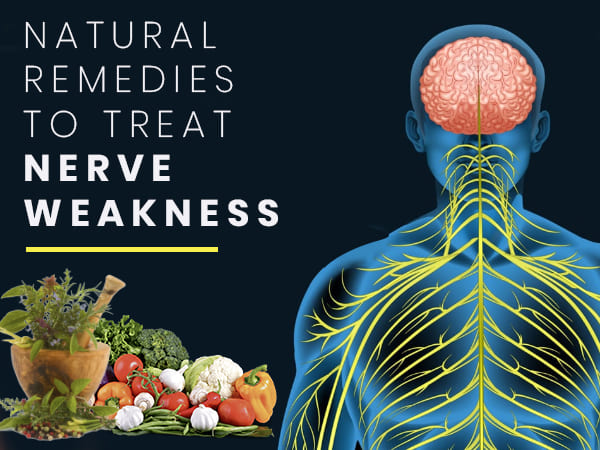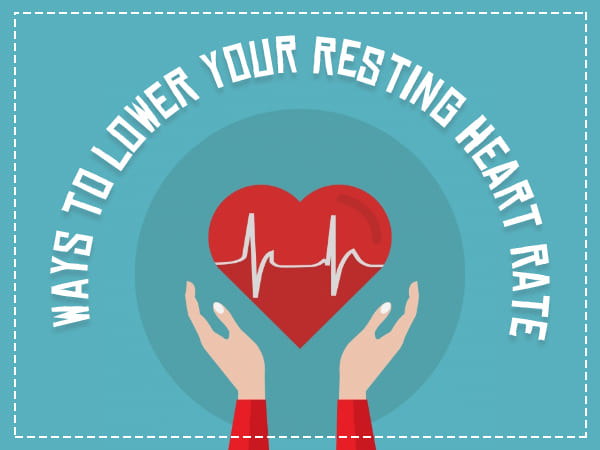
1. Apple
Research shows that higher consumption of fruit and vegetables has a protective association against mental health issues such as anxiety disorders, mood swings and distress. They help boost our mental health due to the presence of essential nutrients. As apple has a rich nutritional profile, it may help fight depression. [1]
What to do: Include apple in your diet a few times a week. You can add them to oatmeal, fruit salad, pancakes or in yoghurt.
 7 Ways To Include Apple In Your Diet
7 Ways To Include Apple In Your Diet

2. Banana
Females may be prone to depression than males due to ovarian hormonal changes and other factors. [2] A cross-sectional study has shown that high consumption of banana shows a positive impact on decreasing depressive symptoms in females, compared to males. [3] Banana is rich in potassium and antioxidants.
What to do:You can include bananas in the form of smoothies, milkshakes, muffins or simply add them to a fruit bowl.

3. Watermelon
Watermelon is an antioxidant-rich food that can be beneficial for brain health. It contains two main antioxidants; vitamin C and lycopene that protect brain cells and delay the onset of degenerative diseases such as dementia. Vitamin B6 in watermelon also helps boost brain functions. Hence, watermelon can be a good food that help in depression.
What to do: You can include watermelon in your eating patterns in the form of juice or include them in a fruit bowl.
 20 Home Remedies To Treat Nerve Weakness, According To Experts
20 Home Remedies To Treat Nerve Weakness, According To Experts

4. Kiwi
Kiwi is rich in vitamin C which is a potent antioxidant. Kiwi consumption can help in enhance the mood of a person with moderate mood disturbances, shows a study. It is also associated with reduction in symptoms such as fatigue, depression and irritation linked to the deficiency of vitamin C. [4]
What to do: The best way is to eat kiwi directly after peeling off the skin or include as a topping in a salad.

5. Avocado
Avocado is rich in nutrients such as vitamin B6, vitamin C, folate, vitamin K and monounsaturated fatty acis. The anti-inflammatory activity of fatty acids helps in reduce the inflammation in the brain and maintain the proper functioning of neurotransmitters. Avocado can be one of the best foods that help with depression.
What to do: Enjoy avocados by sprinkling a pinch of salt over them. You can also add them to your soup or prepare salad dressing using avocado.
 25 Food To Eat When You Have Food Poisoning
25 Food To Eat When You Have Food Poisoning

6. Carrots
In a cross-sectional survey, it was found that raw fruits and veggies like carrots help reduce symptoms of depression with improved mood and life satisfaction, compared to cooked/processed or canned fruits and vegetables. [5]
What to do: Add raw shredded carrots to salads or consume it raw with a yogurt dip .

7. Strawberry
Strawberry comes under a list of antidepressant fruits with Antidepressant food score (AFS) of 31 per cent. AFS is a nutrient profiling system created to provide dietary recommendation for problems related to mental health. [6] The fruit is rich in vitamin C that helps in the regulation of endorphins, a hormone that makes a person happy and improves overall wellbeing.
What to do: Make strawberry smoothie or add them to a fruit bowl, dessert or pancakes.
 11 Must-Have Healthy Vegetables During The Monsoon
11 Must-Have Healthy Vegetables During The Monsoon

8. Cashews
Cashews have mood-stabilising nutrients such as magnesium, vitamin B6 and vitamin B3. These nutrients help in the production of serotonin, a happy chemical that combats depressive symptoms. Also, antioxidants in cashew protect the brain cells from damage due to oxidative stress.
What to do: Either add cashews to your smoothies or a fruit bowl.

9. Nutmeg
A study has shown the potential antidepressant property of nutmeg. It shows a considerable positive effect on the central nervous system (CNS) that includes the brain and the spinal cord. Therefore, nutmeg can play a potential role in managing depression and anxiety. [7]
What to do: Add a dash of nutmeg to your oats, pancakes or raw fruits such as apples.

10. Flaxseeds
Flaxseeds contain a significant amount of omega-3 fatty acids which have antidepressant properties. A study has shown the positive effect of flaxseed in postpartum depression, anxiety, exhaustion, headache and mood swings. Omega-3 fatty acids help regulate neurotransmitters, the dysfunction which causes depression. [8]
What to do: Add flaxseeds to your smoothies, sprinkle on top of salads or add them in baked goods.

11. Cardamom
Though vast research on how cardamom fights depression is not carried out, many studies show that spices such as cardamom, which we use in everyday cooking, have an impact on mental health. The phytochemicals in cardamom treat problems related to the central nervous system such as depression, anxiety and epilepsy. Therefore, cardamom can be a potential home remedy to fight depression. [9]
What to do: Prepare a cardamom tea or use them while cooking vegetables and curries.
 10 Safe And Effective Home Remedies For Orchitis
10 Safe And Effective Home Remedies For Orchitis

12. Asparagus
Low levels of vitamin B and folic acid in the body is linked to depression. Asparagus is packed with folate and B vitamins which are great to treat depression or depressive symptoms and lift moods.
What to do: Asparagus can be consumed in the form of a stir fry. Avoid the over-consumption as they may cause bloating.

13. Broccoli
The production of neurotransmitters for various brain functions needs a sufficient amount of nutrients. The imbalance of nutrients is linked to depression and other mental illnesses. Broccoli is rich in nutrients like vitamin C, iron, potassium, fibre and many more. Hence, broccoli may play a small but important role in preventing depression. [10]
What to do: Prepare vegetables by adding broccoli or add them to your pasta or soup.
 What Are The Best Exercises To Sleep Better?
What Are The Best Exercises To Sleep Better?

14. Pumpkin
Pumpkin has a calming effect on mental health. The presence of magnesium, fibre and antioxidants help in neurotransmitters regulation, reduce degeneration of brain and improve mental health issues such as depression, mood disturbances and stress.
What to do: Eat pumpkin seeds as a snack or by toss them in your fruit bowl.

15. Legumes
Legumes such as black beans, kidney beans, chickpeas and moong beans are considered a staple food with benefits in mental problems. A study has shown that legumes help fight depressive symptoms, especially in perimenopausal women. It is suggested a moderate legume consumption for protection against severely depressed mood in perimenopausal women. [11]
What to do: Prepare soups or vegetables by adding legumes.
 11 Benefits Of Metta Meditation (Loving-Kindness Meditation) And How To Do It
11 Benefits Of Metta Meditation (Loving-Kindness Meditation) And How To Do It

16. Spinach
Spinach is known for both mental and physical benefits. A study has shown that spinach has anti-depressive and anti-stress properties. It lowers the corticosterone blood levels (high levels of which causes stress) and increases glutamine and glutamate levels, amino acids that help in brain functions. [12]
What to do: It is recommended to consume around half a cup of cooked spinach a day.

17. Herbal Teas
Herbal teas such as chamomile, green, St. John’s wort and ashwagandha can help manage depressive symptoms. The large amount of antioxidants and other essential nutrients in these teas regulate the secretion of dopamine and serotonin and improve brain functions.
What to do: Consume chamomile/green/ ashwagandha or other herbal teas as choices of beverages.
 11 Effective Ways to Lower Your Resting Heart Rate (RHR)
11 Effective Ways to Lower Your Resting Heart Rate (RHR)

18. Low-Fat Dairy Products
A study talks about the reduction of depressive symptoms during pregnancy with the intake of dairy products and calcium. [13] Low-fat dairy products and yoghurt help ease the depressive symptoms and lift moods for good mental health.
What to do: Include a considerable amount of dairy products (milk, yoghurt, cheese, butter) in your diet every day.

19. Lean Meat
Lean meats are good sources of vitamin B12 and folate that help maintain the functioning of CNS that includes the brain. Organ meats such as liver are also rich in selenium and is good for managing depressive symptoms and mood swings. Therefore, lean meats and organ meats can help combat depression. [19]
What to do: Include a considerable amount of lean meat in your diet. Chicken breast is considered one of the best lean meats. You can add them to pasta, sandwiches, noodles or prepare gravy.
 Ways To Include Chicken Breast In Your Diet And Its Health Benefits
Ways To Include Chicken Breast In Your Diet And Its Health Benefits

20. Whole Grains
Several studies suggest that whole grains such as brown rice, oats, quinoa, wheat and barley are rich in carbs that help trigger the brain neurotransmitters (serotonin and tryptophan) which are essential for promoting the wellbeing and reducing depression. They provide a moderate but long-lasting effect on the brain.
What to do: Consume the aforementioned whole grains. Caution: some of these grains may not be suitable if you have a gluten allergy.

21. Essential Oils
Essential oils such as lavender, bergamot and rose help in significantly decreasing depression and anxiety when used in aromatherapy. They activate the serotonergic system, promote relaxation and improve mood. [20]
What to do: Pour 2-3 few drops of any of the essential oil in warm water. Cover the head with a towel and inhale the steam.
 15 Effective Home Remedies To Treat Or Prevent Hay Fever Symptoms
15 Effective Home Remedies To Treat Or Prevent Hay Fever Symptoms
Source:


 Are There Home Remedies For Blood In Stool?
Are There Home Remedies For Blood In Stool?






